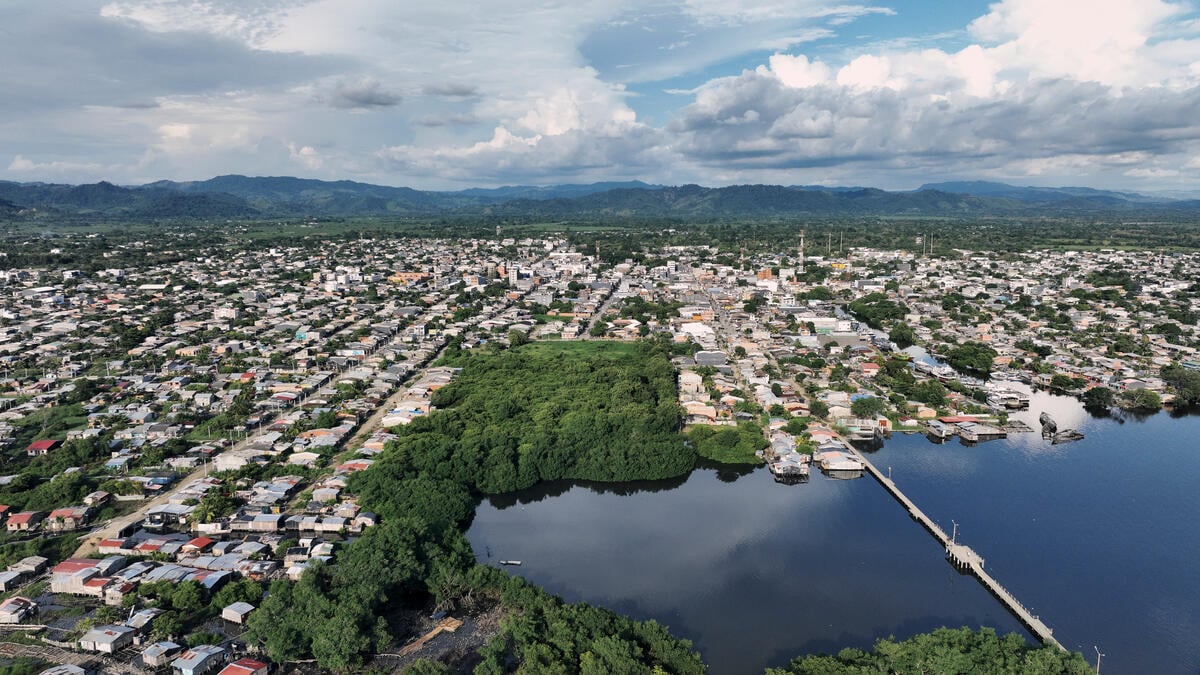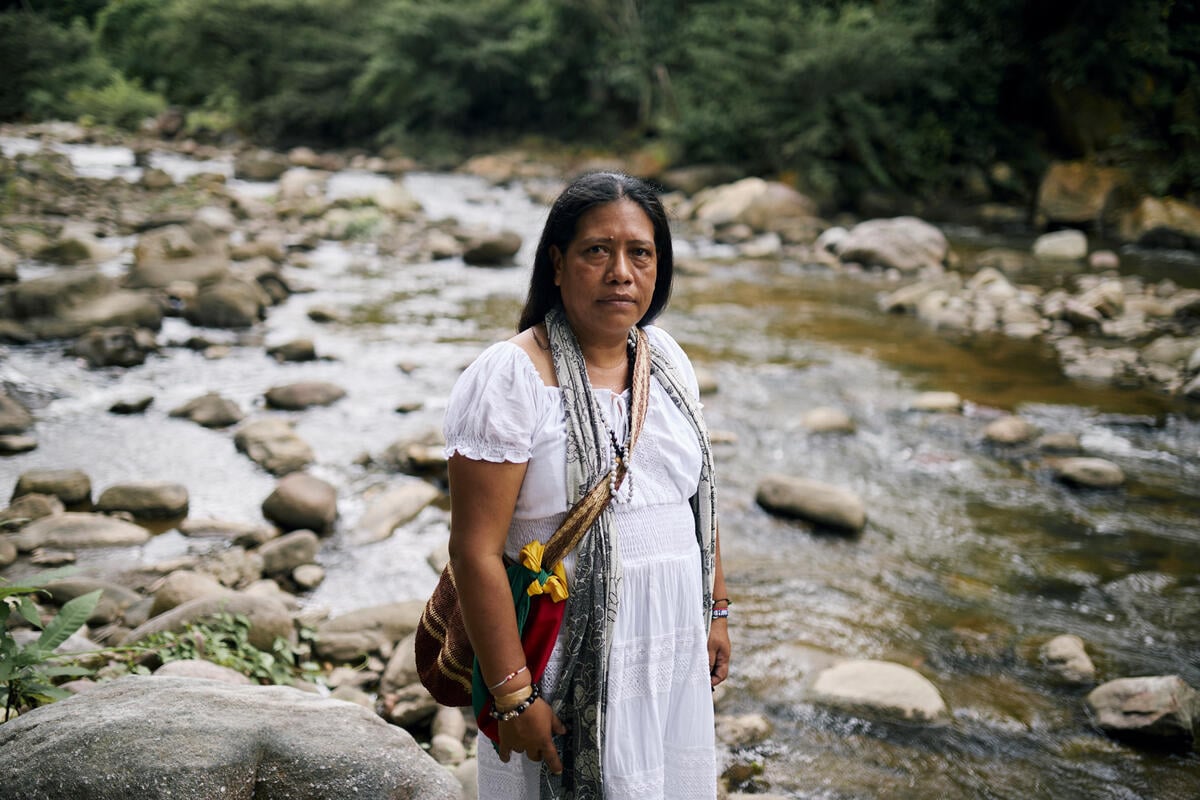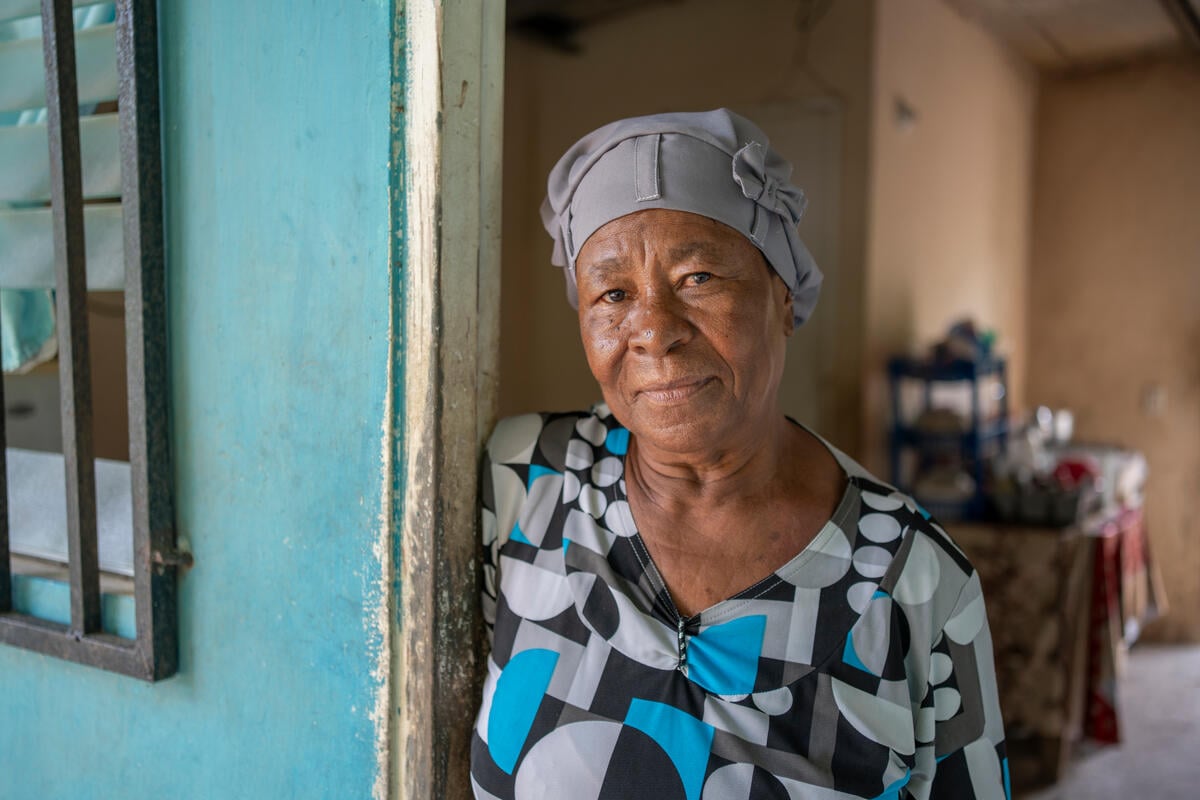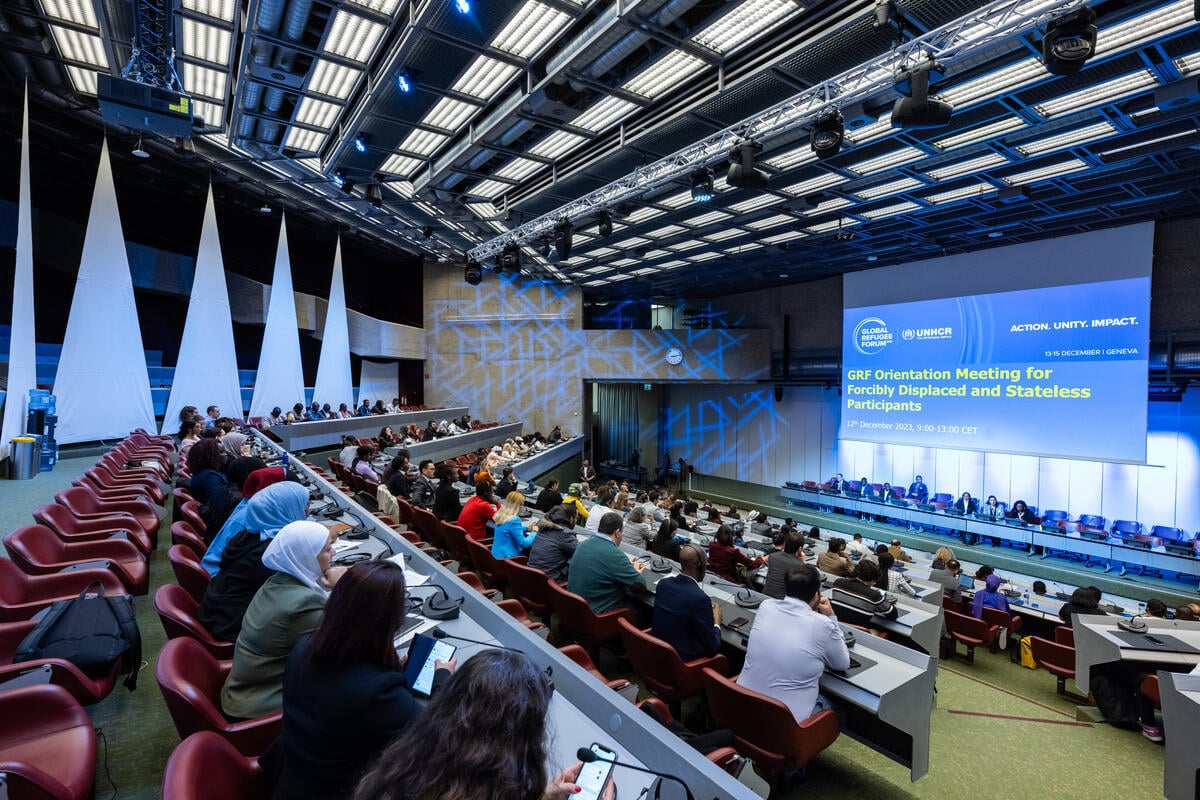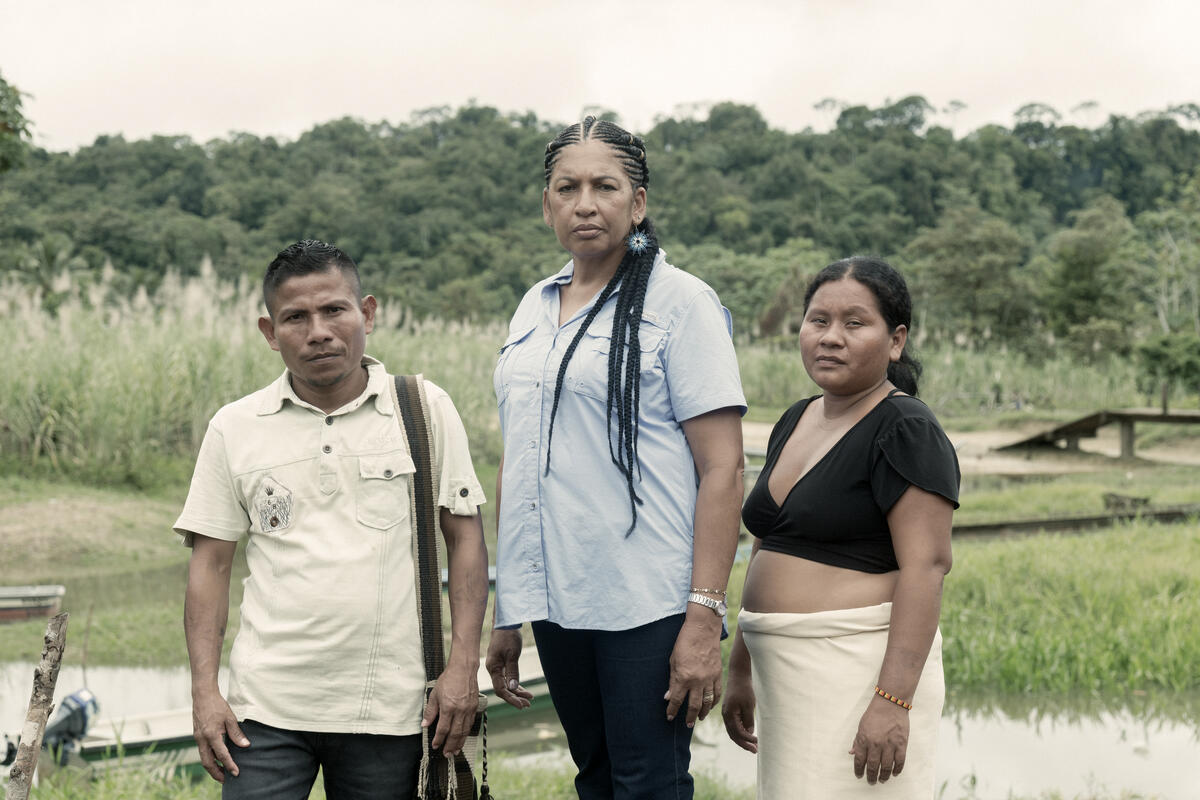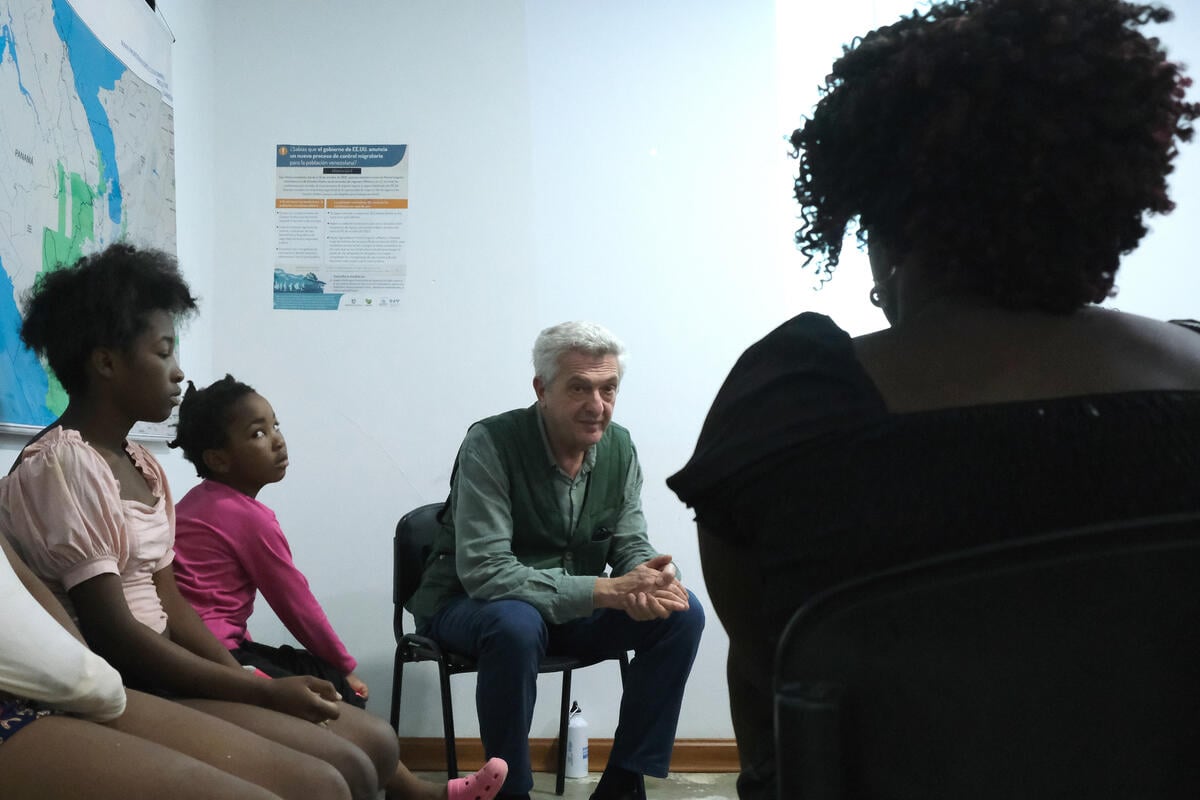Colombia: series of emergency campaigns launched
Colombia: series of emergency campaigns launched
Responding to the serious humanitarian situation in Colombia's north-western province of Chocó, UNHCR and the Colombian National Registry Office have launched a series of emergency campaigns to provide identity documents to some 20,000 men, women and children. Providing documents to the mostly Afro-Colombian and indigenous population of this remote part of the country is the first step towards ensuring that they can enjoy their full rights as citizens by improving their access to security, health, education and housing. Most have fled with no documents.
Identity documents have already been provided to some 1,100 internally displaced persons (IDPs) in the provincial capital Quibdó. They arrived from the Buey River area last week and are living in severely overcrowded conditions. The documents will allow them access to the government's relief programmes.
Security in the Buey River area and in the municipal capital, Beté, where some IDPs have been housed in a UNHCR-built community centre, remains volatile. Under these conditions, UNHCR does not think that a return to their area of origin is a feasible option for the IDPs.
Documentation campaigns will take place in the whole of Chocó province in the next few weeks, including several municipalities south-east of Quibdó on the road towards Risaralda, where some 11,000 people will receive documents.
On 2 May, a documentation team travelled by canoe to four communities along the San Juan River (Nuanamá, Macedonia, Villa Chocó and Villa Wounaan), another region under threat of forced displacement because of the deteriorating security situation. So far, the team has provided ID documents to some 1,100 mostly Afro-Colombians and indigenous people in this area.
From 17 June another campaign will document some 3,800 people in the municipalities of Unguía, Acandí, Río Sucio and Carmen del Darién, close to the border with Panama.
Since 2000, when UNHCR and the National Registry began their joint documentation programme, some 305,000 Colombian IDPs and persons from communities at risk have benefited by receiving identity documents.
Murders in Altos de Cazucá: In Altos de Cazucá, an area close to the Colombian capital, Bogota, where an estimated 20,000 IDPs live, selective murders of young people continue unabated. According to humanitarian organisations working in the area, in the last two weeks alone, 19 young men have been killed by armed groups operating in the area, apparently for breaking a curfew imposed by these groups. This brings the number of young people, many of them IDPs, murdered in the area to well over 70 this year.
As a result of the insecurity in the area, some NGOs working with young people have been forced to suspend their activities.
UNHCR has a Field Office in Altos de Cazucá and our staff are regularly meeting with community leaders and local authorities to try to improve the security situation. In addition, last week, the UNHCR Representative in Colombia met with the Foreign Minister, the director of the Vice-President's Human Rights Office and other senior government officials to express UNHCR's concern at the situation of young IDPs in Altos de Cazucá and other urban areas of the country. According to official government figures, up to a million IDPs live in Colombia's largest cities. Of them, some 400,000 are teenagers and young people under 29.



